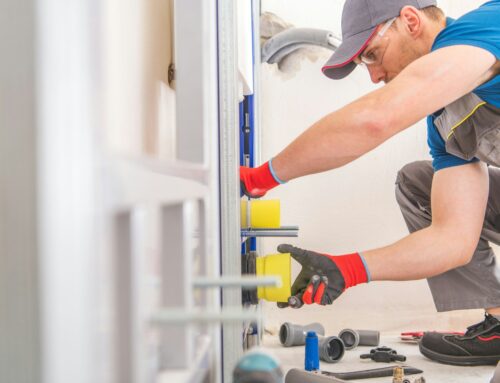One day, you’re running your HVAC business as usual, and the next, you receive a call or email from someone interested in buying it. It could be a competitor, a private equity firm, or even an employee looking to take over. You weren’t planning to sell, but now you’re wondering—should I take this seriously?
Unexpected offers can be exciting, but they also bring a mix of emotions—uncertainty, skepticism, and maybe even a slight panic. Are they offering a fair price? Is this the right time to sell? What happens if you say no?
Whether you’re considering selling or want to keep your options open, knowing how to handle unexpected offers correctly can protect your business and your future. Here are seven tips to help you:
1. Don’t Rush Into a Decision
When you receive an unexpected offer, your first reaction might be excitement—or hesitation. Either way, don’t feel pressured to respond immediately. Buyers sometimes count on catching owners off guard, hoping to strike a deal before you’ve had time to evaluate your options.
Before you give any answer, take a step back and ask yourself:
- Am I emotionally and financially ready to sell?
- Does this offer align with my long-term goals?
- What is my business worth?
Even if selling wasn’t on your radar, this could be an opportunity to reassess your business and plans.
2. Find Out Who’s Making the Offer
Not all buyers are the same. Some may be serious, qualified buyers, while others test the waters. Before engaging in any serious discussions, find out:
- Who is making the offer? Is it a direct competitor, a private equity firm, or an individual investor?
- Why are they interested in your business? Do they see growth potential, or are they just looking for a quick deal?
- Do they have the financial ability to buy? Some buyers make offers without the means to follow through.
If the buyer is serious and credible, it’s worth having a conversation. But if they’re vague about their intentions or seem inexperienced, proceed cautiously.
3. Get a Business Valuation—Don’t Guess Your Worth
A business valuation helps you understand:
- Your company’s actual market value.
- How your business compares to similar HVAC businesses that have sold.
- What factors (like recurring revenue, contracts, and customer base) drive your value higher.
Even if you don’t accept the offer, getting a valuation puts you in control and prepares you for future opportunities.
One of the biggest mistakes you can make is taking an offer at face value without knowing what your HVAC business is worth. Many buyers start with a lowball offer, hoping you’ll bite before realizing you could get more.
4. Protect Your Business Information
If you decide to meet with a potential buyer, be careful about how much sensitive business information you share upfront.
Before disclosing financial records, customer lists, or other private details:
- A signed Non-Disclosure Agreement (NDA) is required to protect your business data.
- Only share high-level financials (not full tax returns or detailed books) when you’re sure they’re a qualified buyer.
- Don’t give competitors an inside look at your pricing, customer base, or employee details.
If a competitor asks for too much detail without committing to serious negotiations, they may be fishing for information rather than making a real offer.
5. Consider the Long-Term Impact of Selling
Selling your HVAC business isn’t just about the price—you must consider the long-term effects.
Ask yourself:
- What will you do after selling? Are you financially set, or will you start another venture?
- How will the sale impact your employees? Will the new owner keep them, or will jobs be at risk?
- What about your customers? Will they get the same level of service under new ownership?
Some buyers may offer to keep you on as a consultant during the transition, while others may want you out immediately. Know what kind of exit works best for you.
6. Negotiate—Even If the Offer Seems Good
Even if the offer looks fair, everything is negotiable. Buyers almost always start at a lower price than they’re willing to pay.
Key areas to negotiate include:
- The final sale price (a valuation will help you push for the best number.)
- Payment structure (will it be a lump sum or installments?)
- Your role post-sale (will you stay on temporarily to help with the transition?)
Having an HVAC business broker on your side can help maximize your deal and ensure you don’t leave money on the table.
7. Get Professional Guidance Before Signing Anything
Selling a business isn’t as simple as selling a car or a house. There are contracts, taxes, and legal implications you need to consider. Before you say yes to an offer, consult with:
- A business broker to help negotiate the best deal.
- A certified public accountant or financial advisor to understand the tax consequences.
- A lawyer to review contracts and protect your interests.
This professional team ensures you don’t sign a deal you’ll regret later.
Bonus Tip: Keep Running Your Business Like Normal
Don’t take your foot off the gas even if you’re considering selling. Buyers will watch closely to see if revenue or customer retention drops during negotiations.
Keep things running smoothly by:
- Staying focused on customer service and contracts
- Avoiding significant changes that could disrupt business operations
- Keeping key employees informed (but not alarmed)
A business that’s thriving until the day it’s sold is far more valuable than one that’s struggling through the process.
Is This the Right Time to Sell?
An unexpected offer doesn’t mean you have to sell—but it does mean you have options. Whether you move forward or not, wisely handling the situation protects your business’s value and future.
The best thing you can do is be prepared. Even if you’re not ready to sell today, knowing your business’s worth and having a plan puts you in control when the right opportunity comes.
Contact an HVAC business broker if you need help evaluating an offer, understanding your business’s value, or negotiating a sale. They’ll specialize in HVAC business sales and can help you make the best decision for your future.







